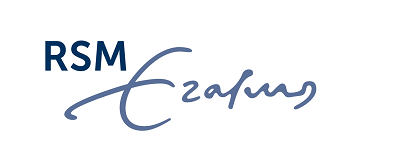- Leadership
The Sisterhood Posse
Women championing women for leadership roles with RSM's Dianne Bevelander
Dianne Bevelander, is the Executive Director of the Erasmus Centre for Women and Organisations, at the Rotterdam School of Management, Erasmus University (RSM), and has been researching why this should be for the last decade. Her counter-intuitive, and slightly startling discovery is that “women are biased against women too.”
While we take stock of that assertion, Bevelander points out that this is a largely unconscious bias, and is predicated on the fact that we all – males and females – tend to hold stereotypical views of what a leader should be, even if we appreciate intellectually that the classic ‘command and control’ style of leadership should be largely irrelevant in today’s organizations.
When Bevelander asks people to describe classic male attributes, they typically respond with words like strong, risk-taking, self-confident, ambitious; and when she asks for classic female attributes receives responses like pretty, nurturing, empathetic and consensual. It has been well-documented that the latter (excluding pretty!) are more valuable characteristics for building agile, innovative and productive teams than the directive attributes used about males – but, nonetheless, for most of the population it is those assertive ones that we continue to associate with strong leaders.
Female Assertion Brings Negativity
For women the situation gets worse though. For it is also well understood that when women display assertive actions and behaviours, even to a lesser extent than males, they are immediately judged to be difficult, demanding, or hostile to a much greater degree than their male colleagues tend to be – and, critically, this negative judgement comes from women as well as men.
These factors lead to a difficult situation arising, that while predominantly female-type characteristics are increasingly being promoted as beneficial leadership attributes, it is still the old school, assertive behaviours that are being rewarded and promoted into leadership roles. However, if women try and adopt these assertive styles of behaviours it can easily backfire on them, while men are not penalised in the same way.
Dianne Bevelander has been grappling with this conundrum both academically and in practice. The clarity around the issue started to emerge when she was still in an administrative role at RSM and that led her into academic research. The bias against women is deeply cultural, and that is why it is largely unconscious she notes. The fact that more undergraduates are women than men these days is clearly a sign of progress, but Bevelander says the text books they read, the leaders brought in to speak to them, the faculty in front of them, are still largely male – and this inevitably embeds the idea that it is men who are in charge, even if the conscious brain knows that is not the case. It also means there are fewer obvious female role-models for women to follow.
Bevelander accepts that this unconscious bias can also work in the other direction, the 1.9m (6’2”) bearded man may struggle to be seen as a nursery-school teacher, for instance, but generally the bias is more prevalent in favour of men than women.
The Sisterhood Posse
So what can be done? In fact, the solution is not rocket-science, but it does require active effort and attention. It also plays to those classic female attributes that lie at the heart of the differences between male-type and female-type behaviours. Bevelander is clear that if women cannot get away with the self-promotion that men typically do – championing themselves and their abilities and wins – then it is up to the women around them to actively do it for them, and for each other.
‘Rule number 1’ is never to criticize other women. “Only speak positive things about other women, or say nothing at all,” says Bevelander. The generally more caring and nurturing nature of women, allied to their more supportive and fostering friendship styles, in comparison to stereotypical male friendships, should allow for this championing of each other to occur naturally. It can gain traction quickly with ideas and concepts from women on how to promote themselves collectively more effectively. The notion of ‘sisterhood’ or forming a ‘posse’ of mutually supportive women in organizations is central to this approach – where women look out for each other, and talk-up each other’s successes and abilities.
This needs to be done in a non-gender tribal fashion, it should not be women vs men. But by women becoming aware of their own biases, and then learning how they can counteract those behaviours, they can start to promote those who do not naturally promote themselves, more consciously.
Dianne Bevelander has been working with diverse groups of women in academia, in open enrolment programs at RSM and in custom programs in-company, and the momentum is growing on this process. There are many more elements to making it work successfully than we cover here, but the first step, as always, is awareness.
One of Europe’s leading business schools, and ranked among the top three for research, RSM provides ground-breaking research and education furthering excellence in all aspects of management.
ARTICLES YOU MIGHT LIKE
RESEARCH
Why organizational resilience requires adaptive leadership particularly in times of crisis
DEVELOPING LEADERS QUARTERLY MAGAZINE AND WEEKLY BRIEFING EMAILS


































